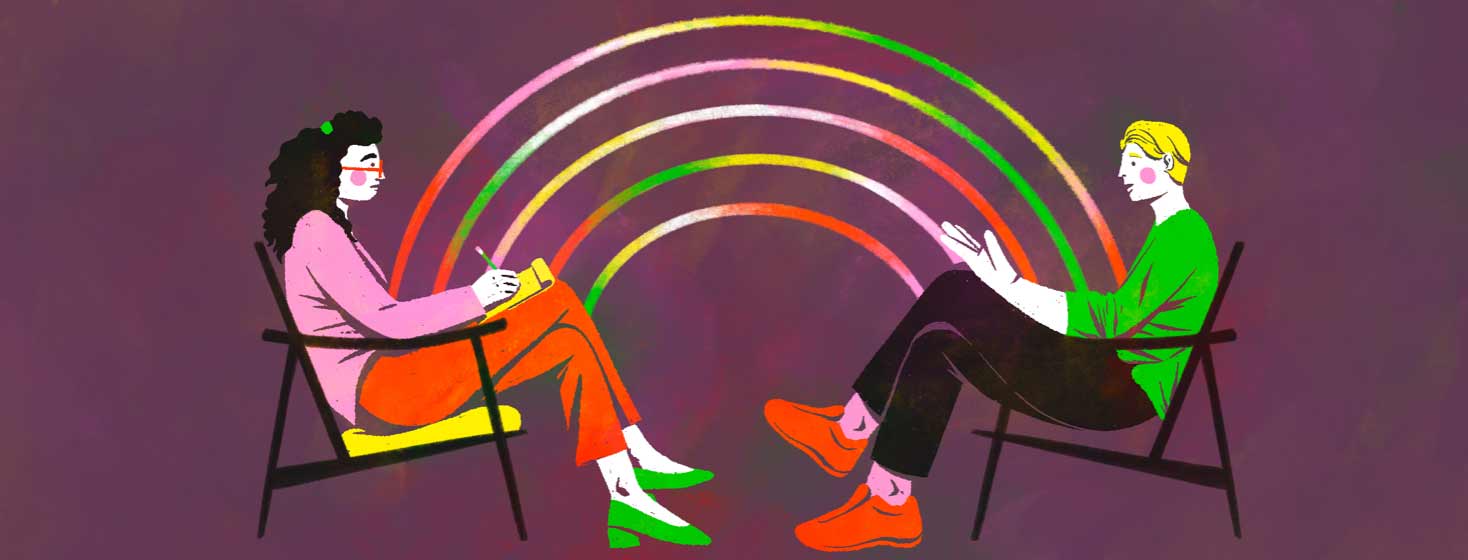The Importance of Addressing Your Mental Health
As we wrap up Mental Health Awareness Month and since people with HIV have higher rates of depression, I thought it would be a good time to share my experiences.
Being newly diagnosed with HIV
Being diagnosed with HIV as a kid in the pre-effective treatment days of 1987 wasn’t easy. Newsflashes about the epidemic were unflinchingly grim in tone and messaging was seldom directed at people living with HIV. The best you could hope for was hearing about a potential cure that would probably arrive years after your implied expiration date.
To quote myself from that era: "It sucked."
Anytime HIV/AIDS was in the news, I felt a chill down my spine. In the blink of an eye, I’d go from a teenager in a small-town to someone on borrowed time. I’d snap back pretty quick but, looking back now, I’m glad I’ve assessed the delayed impact of those early years and long depressive spells that HIV conjured.
Denial
I didn’t talk about living with HIV for close to a decade. I figured I’d have to deal with it when I got sick and didn’t want to really think about it until that day came.
Though my mom, dad and older brother supported me as best they could, they understood that I was dealing with it all in my own way. I took relief in never talking about it and they took relief in the simple fact that I was still alive.
My mom broached the topic of talking to a professional, but I balked. I couldn’t even talk to my best friends. These days, seeing a psychologist is part of my routine healthcare, but back then I couldn’t see the benefit of scheduled time to talk about the one thing I never wanted to think about.
I just wanted to enjoy my life for as long as it lasted, and that didn’t seem possible if I made any room for HIV.
Something felt off
My 20s started out with a plot twist I never saw coming: going public with my HIV status. The two months leading up to that game changer were an emotional slog. I was aware that I’d gone through some periods of withdrawal over the years, but not since my diagnosis had I experienced such an extended downturn.
I couldn’t quite put my finger on it… but I knew I shouldn’t be depressed over missing a spare in the middle of the night, a solid two hours after the lights at Wayne Lanes turned off.
What if I talked about it? It being HIV?
Not talking about HIV seemed harder than shoving it back down below the surface. I’m forever grateful that I ran with the revelation. I put up a website with a positive spin on living with HIV, something I’d never really seen before. I started getting messages from people from all over the world- many who were also living with HIV.
To quote my younger self: "It didn’t suck."
The dangers of denial
When my t-cells started to drop dramatically over the next few years, I ignored it. Almost as if the medical condition itself was an annoying afterthought. I missed going to a concert with friends because I had a two-month long bronchial infection.
I waited way too long time to start taking HIV medications because I didn’t want to disrupt my wonderful life flow with the daily reminder of pills and potential side effects.
One of my friends with HIV that I’d met online said: "Shawn, you will DIE if you don’t start taking meds!"
I needed to hear that.
Still, I waited another month or so.
Ups and downs
I started taking HIV medications the week I turned 24. Thankfully, my t-cells and viral load responded well. Within a year, I was traveling with the love of my life, Gwenn, educating together as a sero-diverse couple. It felt good presenting a genuinely healthy relationship to people and discussing sexual health in a fun, conversational way.
When things slowed down I started noticing depression again. Was it back, or had it never really left? The long downturns in my mental health started to become more frequent, which annoyed me because I was physically healthy with a safe roof over my head and an abundance of love in my life.
So, what was my problem?
At first, seeing a psychologist was daunting. Plus, I felt tired and unmotivated. Now, like HIV, it’s a routine appointment that’s part of my overall health strategy. I trust myself to sit with my thoughts and process downturns in my emotions as opposed to the old days of ignoring them. As a result depressive episodes are the shortest they’ve ever been.
Getting help
Basically, feeling down doesn’t feel like defeat anymore. There’s always a light at the end of the tunnel as opposed to just waiting around for daylight. That’s because I have a wonderful healthcare team, friends and a partner that I trust.
I also have a better understanding of me.
Regardless of HIV status, comfort in your own skin goes a long way in enjoying this little adventure we are all on. Whether we admit it or not, mental health is a huge part of our overall health. If you’re having persistent negative feelings, or have had them in the past, please consider reaching out to someone that can help.

Join the conversation